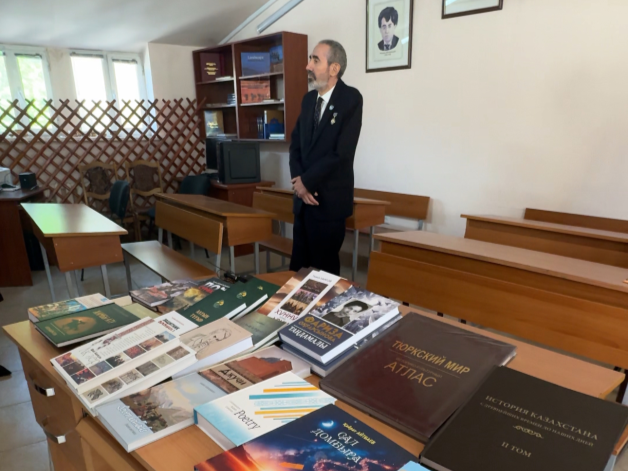Yerevan students actively study Kazakh language

In Armenia, the Abai Center for Kazakh Language, History and Culture operates at Yerevan State University, the main task of which is to develop bilateral cultural and humanitarian cooperation between Kazakhstan and Armenia, as well as promote Kazakh national culture.
One of the Center's activities is the translation of works of Kazakh literature into Armenian. The Armenian reader already has access to the works of Shakarim Kudaiberdiev, Akhmet Baitursynov, Magzhan Zhumabaev, and the epic novel "The Path of Abai" by Mukhtar Auezov.
"For the 175th anniversary of the great Kazakh poet and thinker Abai, his "Words of Wisdom" were translated into Armenian. This was preceded by a great deal of preparatory work: the original manuscript, as well as translations into Turkish, English and Russian, were carefully studied. In addition, a deep historical and philosophical analysis of each Word was carried out," said Alexander Safaryan, Head of the Department of Turkology at Yerevan State University, Professor.
One of the Center's large-scale projects is a fundamental anthology of Kazakh literature. Talking about the features of this voluminous publication, Alexander Safaryan said that the collection includes not only literature of the classical and Soviet periods, but also the best examples of Kazakh folklore, epistolary genre and works of outstanding representatives of modern Kazakh literature. In addition, rare photographs and correspondence between Shokan Ualikhanov and Fyodor Dostoevsky are included.
The professor also drew attention to the fact that there are more and more young people who want to learn the Kazakh language and get to know Kazakh culture better.
"Currently, about a hundred students are studying the Kazakh language at the center. The library and fund of the university center has more than a thousand books in Kazakh and translated from Kazakh. These initiatives are aimed at strengthening cultural cooperation between the two countries and promoting our historical and literary heritage at the international level. And in the future, this work will continue," Alexander Safaryan stressed.